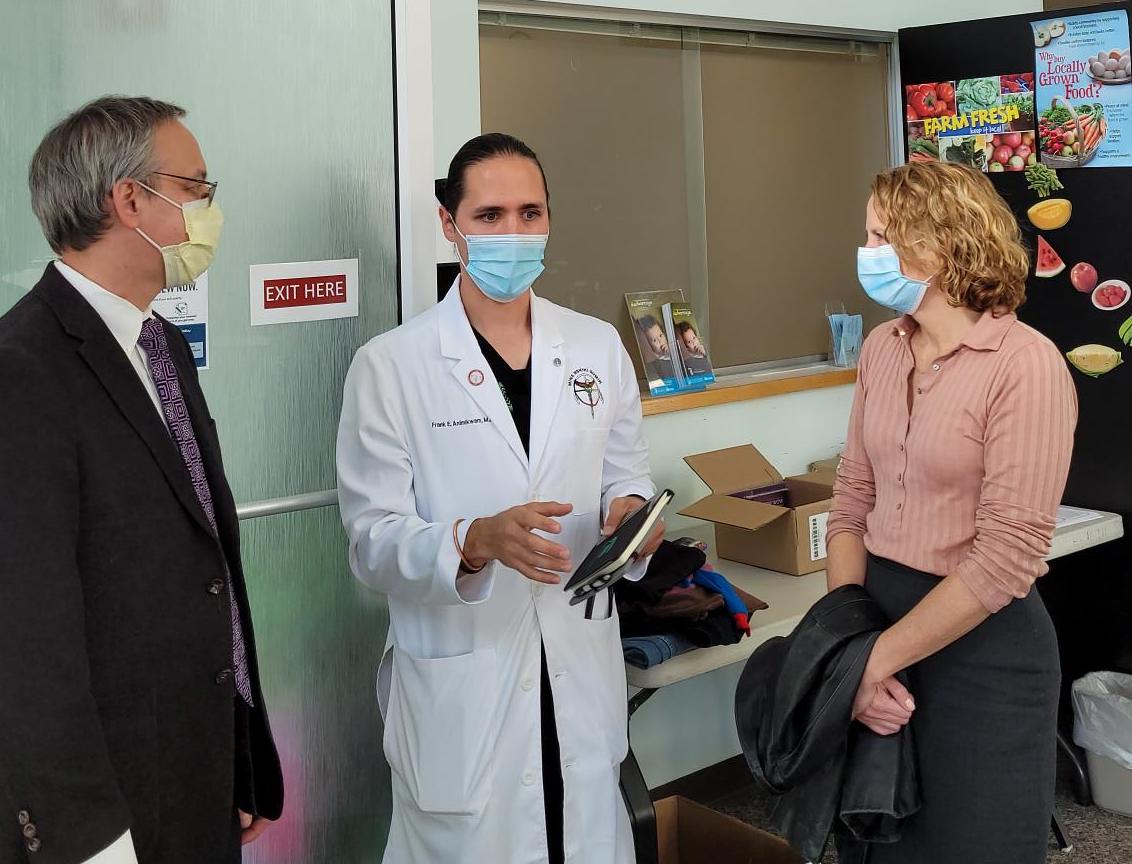Dean's Update
October 14, 2022 - Aron Sousa, MD
Friends,
The news of President Stanley’s resignation made me sad but also heartened by his example of integrity, accomplishment, and dedication to the principles that have made American higher education the envy of the world. To be sure, his video message to us was an announcement of his decision, but importantly, it was also a call to continue the great work of the last three years. His message was clear at the close, Spartans Will…indeed, we will.
With that in mind…. This week, I visited Petoskey and Traverse City. I had the chance to meet with our students, some of whom were in town and others were in their rural community. Their engagement, talent, and dedication are always energizing! Our merry band of me, Jerry Kooiman, Andrea Wendling, MD, and Stephanie Stotenbur, met with donors, hospital partners, researchers, clerkship directors, campus staff, community partners, and alumni.
I always learn about our communities when I visit, but this time the visit changed my brain in important ways. More on that in a bit. On this trip, I specifically wanted to catch up with Frank Animikwam, MD (CHM ’17), who rounded with me as a third-year student on internal medicine. Dr. Animikwam went on to do his family medicine residency at Sparrow and is now the medical director at the health clinic of the Little Traverse Bay Bands of the Odawa Indians (LTBB). The clinic provides medical care, dental care, mental health care as well as traditional healing. I was so impressed by the clinic, the work Frank and his colleagues do, and the systematic approach the tribe takes toward health.

Close readers of the update will note the college is making a thoughtful and concerted effort to engage and partner with indigenous groups in the state. In August, we announced an agreement with Bay Mills Community College, creating a pathway from the tribal college to medical school. Andrea and Liz Lyons, Ed.D, have been talking with Dr. Animikwam about pathways and clinical opportunities designed to support indigenous medical students and younger students interested in medicine. We aim to be thoughtful, useful, and focused on collaboration.
After the tour of the clinic, Frank spoke with us about the trauma the local boarding school inflicted on his people, on his patients. I’d long known about the boarding schools in Canada and their design to suppress and expunge tribal language and culture. Somehow, I had missed that the same boarding schools existed in Michigan. In fact, just north of Petoskey in the heart of the LTBB homelands, specifically in Harbor Springs, the Holy Childhood of Jesus School (also called the Holy Childhood of Jesus Indian Industrial School) started in the early 1800s, closed for a while, and returned in the 1880s. The school was run by the Catholic Church and often funded by the federal government because a “boarding school in which the children could be kept all the year round, away from immoral influences, had long been felt to be a necessity.” Of course, the “immoral influences” the children were kept from included the children’s parents and their language, elders and their counsel, the tribe and its culture.
As in Canada, the purpose of boarding schools was to suppress anything Indian about Indians. The school continued in operation until 1983. In the wake of the discovery of mass graves at Canadian boarding schools, we all have to wonder what would be found with a dedicated search of U.S. boarding schools, including the site at Harbor Springs. So far, the diocese has not allowed the sophisticated searches that have been conducted in Canada.
This week started with Indigenous Peoples' Day, which I hope we all take as an opportunity to be curious about, and interested in, the history and lives of our neighbors from native tribes. It turns out this is not remote history – the peers of people in their forties and older were in this boarding school. Our colleagues, Dr. Animikwam and his team, help their patients find health and hope amongst the traumas and reminders in the community. Even at a distance, through work to support students, who in turn serve the people, or through engagement with community partnerships, or through advocacy and science in support of health, we are and always will be a force for good…indeed, we will.
Serving the people with you,
Aron
Aron Sousa, MD FACP
Dean

